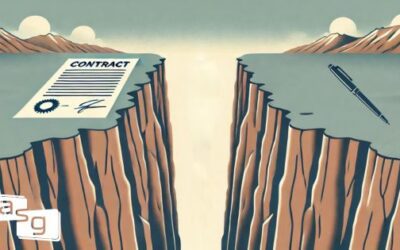Sales is suffering from 9 brutal ills:
- The Bro Culture
- Lack of Coaching
- Too Product-Centric and Not Problem Centric
- Not enough salespeople understand the game/rules of sales
- Too much reliance on sales tools.
- Not enough training in the industry/space
- Too much activity management
- Little respect for prospects and buyers time
- Not enough humility
“Welcome to the team,” said my new sales manager, as he dropped a giant yellow pages phonebook on my desk.
“We’re excited to have you.”
That was how my first job started. A hello, the thud of a large yellow pages phone book hitting my desk and a quota. That was selling in 1996.
There were no sales tools. There was no Outreach or Salesloft to provide cadence support (I built my own cadence, and BTW cadence wasn’t even a thing back then). There was no Salesforce. I was given a copy of some desktop database like Filemaker Pro and was told to build my own CRM. (And I did, it was dope.) There was no LinkedIn Navigator to connect with buyers (that’s what the phone book was for). There was no ZoomInfo to get buyer information. There was no Yesware to see if people were engaging with your content. There was no Bomb Bomb or Vidyard for video. There was barely email and not every buyer had it.
In 1996 all salespeople had was the phone, snail mail, bifold collateral with info sheets, that we would physically mail and our hard work. That was it!
And it stayed like that for a while. Yes, we added a few things here and there. Salesforce came on the scene. Email became prevalent, websites were showing up, but selling was still a job of grind. We didn’t have the luxury of sales tools to keep all of our notes, call logs, etc. in one place.
To be successful selling just a decade ago meant you had to hone your skills. You had to focus on all aspects of your game. From prospecting and cold calling, from discovery and engagement to problem-solving and solution development to closing, you had to do it all on your own. There was no help, no tools to cover your ass. There was nothing to make up for or to compensate for any weakness you had. There was no hiding.
Today, salespeople have everything they need to be successful and with that comes less need for the basics. We’re seeing a generation of salespeople who don’t have to do the work that hones their selling skills. When salespeople have to learn to research or build their own cadence or make cold calls without the support of email, or video, or write their own emails or manage their opportunities without CRM etc. they learn invaluable lessons and skills that make them better salespeople.
Work is a great teacher. Failure is a great teacher. Unfortunately, with the advent of all those support and sales tools and the complete, all-encompassing sales stack, salespeople are being denied opportunities to develop the raw and base skills required and the sales world is losing because of it.
We’re putting too much emphasis on the fancy sales tools and not enough on the selling skills. We’re training salespeople on how to manage Outreach cadence but not how to create powerful cold calling messages or cold calling emails. We’re teaching them how to leverage Discover.org but not how to read a 10k or use Google Alerts to get important information about their target customers. Companies sales stack budgets are bigger than their sales training budgets and that’s a problem.
Selling is a skill and like all skills, it can be honed, improved, developed and maximized. And like all skills, it can be improved via tools, but it can also be killed by the over reliance on sales tools.
We need to be careful how much we rely on sales tools, ’cause as much as many of you may want to rely on automation and a powerful sales stack, getting the deal will always come down to the most skilled salespeople.
Pretend the sales tools aren’t there, develop your sales team and their selling skills, then use the tools to make them even more efficient, that’s where the win is.



0 Comments